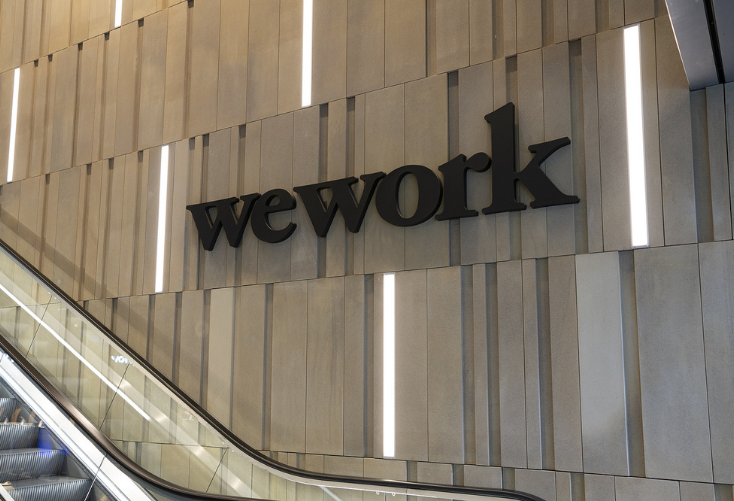Hand selected flexible workspace news from the most reliable sources to keep you ahead of the pack. We find all the latest news, so you don’t have to. Morning and afternoon updates. Stay in the know.
Here’s what you need to know today:
- Apartment Coworking Offers The Ideal Solution NEW
- Coworking Camps Offer Oasis For Digital Nomads NEW
- How Technology Will Impact Talent Recruitment NEW
- WeWork Files Lawsuit Against D.C. Landlord
- Remote Work’s Effect On Downtown L.A.
- Why Upskilling Young Remote Workers Is Crucial
Apartment Coworking Offers The Ideal Solution
Research has found that there are pros and cons to working from home and working in an office, so how can companies find a balance between the two without sacrificing benefits?
One way is to incorporate a shared workspace within apartment complexes, which would help those who want to work outside of their homes, continue to enjoy a lack of commute and support their local neighborhood.
Doing so ensures that remote workers can have more social interaction and stay away from the distractions of home.
A survey from Colliers found that 77% of those working from home do not have a dedicated space, which can make being productive a struggle.
That is why adding these workspaces within workers’ neighborhoods is the ideal choice as it equips them with tools necessary for every day work life, such as reliable internet connection, printers, and comfortable work stations.
Working from home has been found to leave workers feeling isolated and lonely, leading to a decline in mental health. So having a local coworking space to come into not only helps people work more efficiently, but it can greatly improve their wellbeing and give them more opportunities for socialization.
Apartment coworking could likely see even more demand than traditional offices as most have other amenities such as fitness facilities, pools and entertainment areas.

Coworking Camps Offer Oasis For Digital Nomads
Coworking camps is one of the newest trends to emerge over the last few years, created by entrepreneurs who have seen a gap in the market for digital nomads. So where are these coworking camps located?
Des Potato Head in Bali offers a “sustainable creative campus” that features a hotel, farm-to-table restaurant, pool, music studio, events and work hubs curated for traveling professionals.
Ethos Remote Habitat in Tulum, Mexico opened last fall and offers digital nomads a space to work, while also enjoying other amenities like fitness classes and meals.
“Unlike just renting your own Airbnb or staying in a hotel, with us, you get to live in a community alongside inspiring individuals and revitalise your mind and body through nourishing and organic food, transformational workshops, group activities and learning immersions,” said Janko Milunovic, CEO and co-founder of Ethos Remote Habitat.
Selina is another company that markets itself as a place to “stay, live, work and explore.” Selina offers subscription travel packages across 76 hotels throughout Europe, Latin America and the U.S. that provides access to coworking spaces, wellness activities and discounts on food and drink options.
With the promise of a vaccine on the horizon and travel bans slowly being lifted, coworking camps could see a big emergence in the coming years.

How Technology Will Impact Talent Recruitment
Prior to the pandemic, digital transformation was already expected to change the way we work for good. Now, the pandemic has accelerated the need for businesses to adopt automation to stay ahead of the curve.
This is expected to transform the way companies attract, recruit and hire top talent.
One way companies are trying to accommodate the evolving workforce is by investing into upskilling. For instance, Amazon has dedicated $700 million to upskilling its workers through 2025 to prepare them for a more digitally-fueled workplace.
Amazon’s various training programs all share the goal of helping its workers to expand on their critical skills so they have more career opportunities in the future.
PricewaterhouseCoopers is another company that is heavily investing into training and upskilling programs to the tune of $3 billion.
Even prior to the pandemic, businesses have realized that technology will play a big role in the future of company operations, therefore employees need to be ready to fill in new roles.
Manual jobs are expected to become more digitized in the future, and instead of it taking jobs away from people, employees will need to learn how to work alongside these technological advancements.
The new normal will also include attracting employees with the right amenities and benefits, particularly flexible work options. The last several months has ramped up demand for shorter workweeks and remote working, and companies need to be prepared to meet those needs if they want to bring in top talent.

WeWork Files Lawsuit Against D.C. Landlord
In September, WeWork filed a lawsuit in D.C. Superior Court against one of its largest landlords, stating it refused to reimburse the coworking company for upwards of $13.6 million in build-out costs.
Now, WeWork is being accused of “actual or imminent” financial insolvency by Capitol Crossing I LLC, an affiliate of Property Group Partners.
The landlord is alleging that it provided WeWork with two reimbursements in August and October of 2019 that totaled $3.2 million.
Then, in May, WeWork representatives reportedly asked to change the terms of the lease at 200 Massachusetts Avenue to a profit-sharing agreement.
That’s when discussions broke down and WeWork’s legal team requested a non-disclosure agreement, which Capitol Crossing refused to carry out.
“Tenant’s actual or imminent insolvency and its inability to pay rent when due over the course of the Lease constitute breaches of the Lease and obliterates Landlord’s ability to recoup tenant improvement funds that otherwise would be provided by Landlord, as contemplated by the Lease,” wrote Seamus Curley, an attorney with Stroock & Stroock & Lavan LLP, representing Capitol Crossing response and counterclaim to WeWork’s lawsuit.
In June and July, WeWork once again made requests for reimbursements, which Property Group Partners refused to pay until the company disclosed more information about its solvency.
This is the second lawsuit WeWork has filed against another one of its biggest landlords in D.C., with the first being a $7 million suit against Anthem Row.

Remote Work’s Effect On Downtown L.A.
Although the pandemic’s impact on the future of work and the office sector is still unclear, one thing that is guaranteed is the increase of remote working arrangements.
Remote working is expected to be a challenge for urban centers, but Los Angeles’ Downtown Center Business Improvement District (DCBID) says this shift could present new opportunities for the area.
“Let’s say a combination of telecommuting, flextime, and other factors reduces current office space use by 10-20%, on top of an already stubbornly high vacancy rate,” said Nick Griffin, executive director at the DCBID. “Based on existing assumptions, that’s a huge hit for current property owners, but it does open up opportunities for reimagining, reconfiguring, and repositioning those properties.”
Griffin added that moving to a more distributed workforce could accelerate the downtown residential population, particularly if buildings are repurposed for both office and residential uses.
After 9/11, New York City saw a huge expansion of its residential population as offices were repositioned. Then, as retail and dining made a comeback in certain areas, so did the office market. That is the trend that Griffin hopes to see in Downtown Los Angeles, as well as other areas of the country.

Why Upskilling Young Remote Workers Is Crucial
New research from Sharp has revealed that European office workers are worried about the future of their career prospects due to lack of training and upskilling opportunities while working remotely.
These findings raise concerns that there could be a ‘career lockdown’ for digital natives as opportunities to progress slow down.
The majority of workers under the age of 30 found that remote working has made them more productive, while technology has helped them complete their job more effectively.
Still, 61% of the 6,000 respondents stated that working remotely has made it more challenging to stay in the loop about things going on within the company.
“There is a growing trend that the youngest generation of workers, as ‘digital natives’ who know how to use tech, can be left to their own devices, to figure it out alone,” said Viola Kraus, future of work organizational psychologist. “It’s important to make sure the fundamentals of work that are key to career development aren’t left behind.”
Additionally, 55% said they feel isolated from their team and over half stated they are struggling to maintain their motivation.
While younger workers have spent the majority of their lives using technology, they still need to be taught new business skills in order to see any career development.
So it is up to business leaders to ensure that employees are being encouraged to learn new skills in order to help them with career prospects in the future, while also keeping them engaged.


















